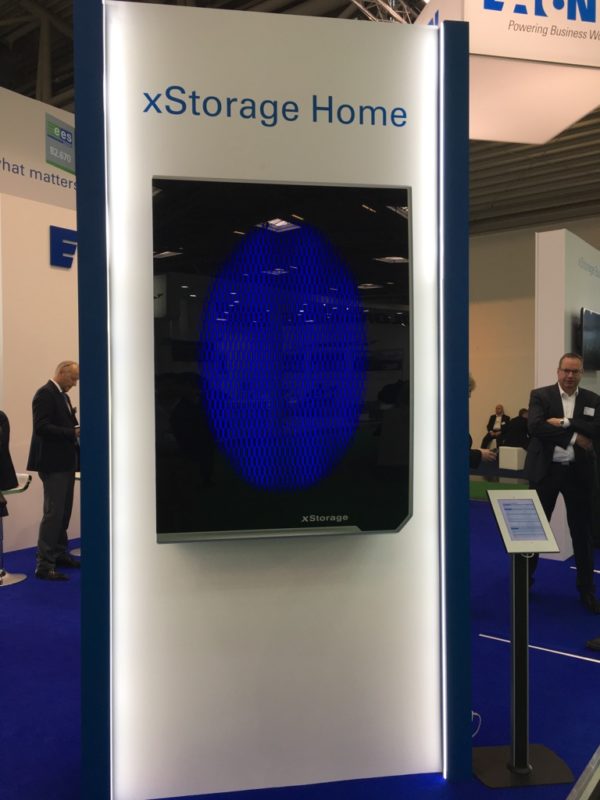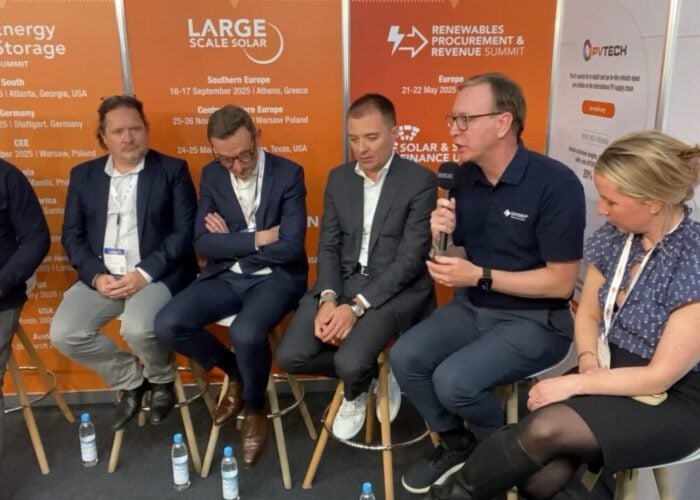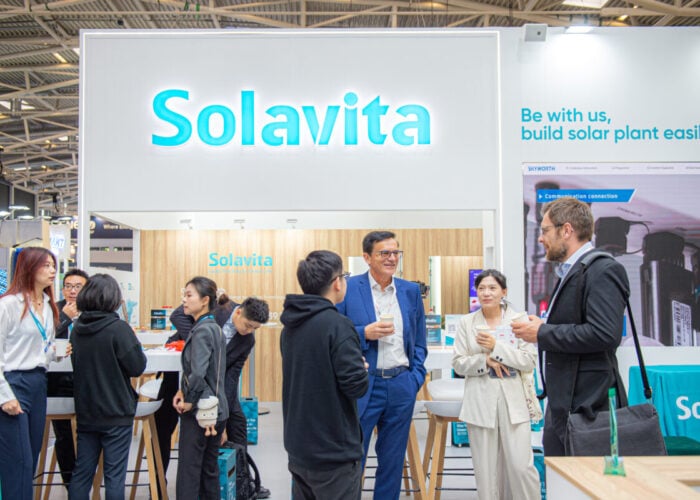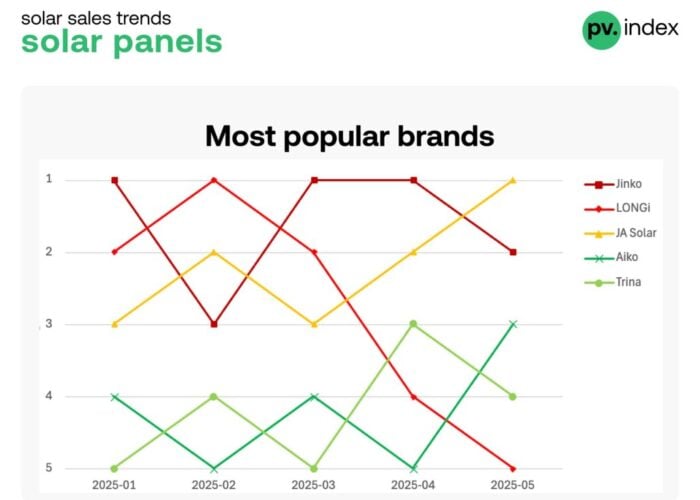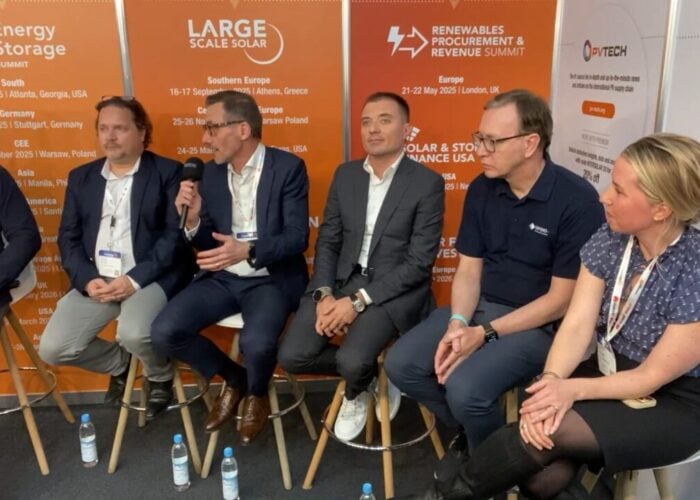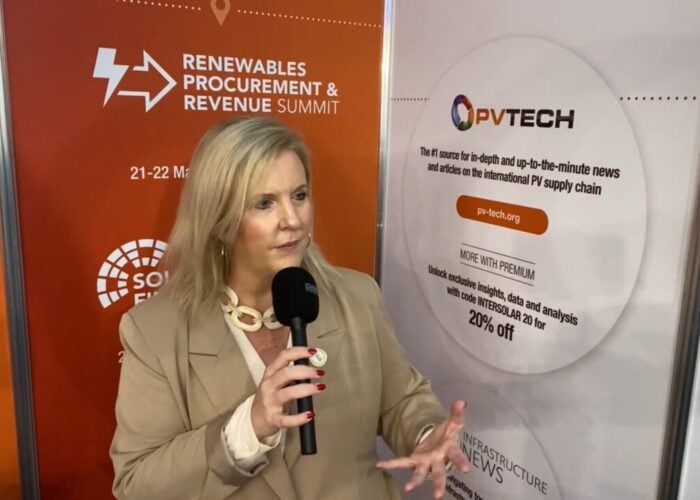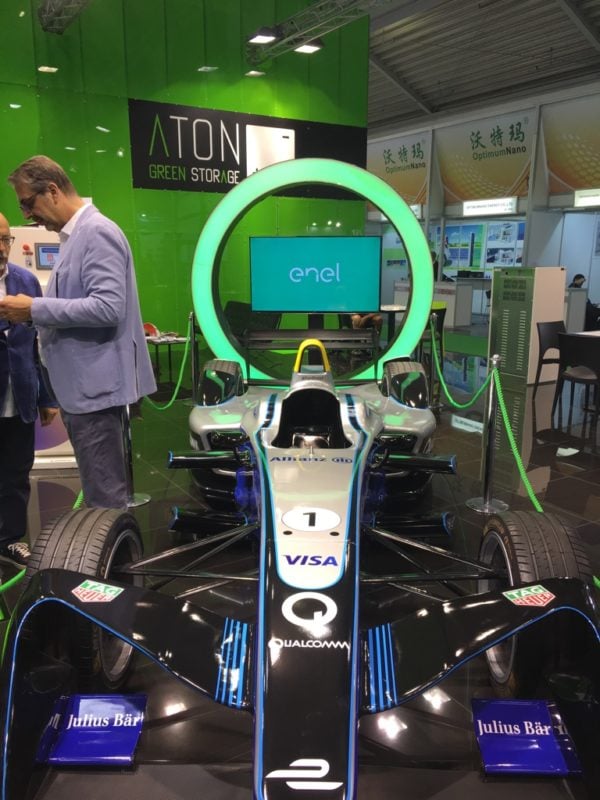
Earlier this month the Intersolar fair took place in Munich. It has been the lead fair for the global solar boom and has become an icon of the energy transition. It is also one of the best places to take the pulse of the future energy industry. This time, there was a distinctly different vibe to it. And we at TFE Consulting liked it.
Intersolar used to be about solar. It no longer is. It is now about new, distributed energy solutions. The fact that it has out-grown the solar industry makes sense. It was solar PV technology that gave wings to distributed energy generation. However, nowadays, the solar companies almost seem like relics at the fair. Here are some key takeaways:
Unlock unlimited access for 12 whole months of distinctive global analysis
Photovoltaics International is now included.
- Regular insight and analysis of the industry’s biggest developments
- In-depth interviews with the industry’s leading figures
- Unlimited digital access to the PV Tech Power journal catalogue
- Unlimited digital access to the Photovoltaics International journal catalogue
- Access to more than 1,000 technical papers
- Discounts on Solar Media’s portfolio of events, in-person and virtual
From commodities to complex solutions
It is all about integrated technology solutions, with storage and energy management at its core. This is a sign of a maturing industry. The fair used to be dominated by rows upon rows of PV panel manufacturers, trying hard to differentiate themselves (often unsuccessfully). Today, there are fewer stalls, but they are larger, more diverse and far more interesting. They showcase an exciting new energy world in the process of integrating itself from many different starting points. Which brings me to the second observation:
New, big players are making a splash
Enel, one of the world's largest utility companies, proudly displayed an electric “Formula e” car (see picture above). Large Chinese players with integrated storage solutions, such as PylonTech, are making a mark. The biggest stalls, however, were those of the electrification companies ABB and Siemens. They are the spiders in the web, offering energy management solutions from off-grid, to micro-grids, to the main grid and from the generation site to the cloud. Then, there are the car companies making a play. Tesla is there, of course. As is Mercedes-Benz, with their new, sleek looking home storage product. The car guys argue that, because they understand electric mobility, they also understand distributed storage. And they understand how to engage a consumer emotionally, which is my next point.
Design and desirability: Energy is becoming cool
This is perhaps the most important new development: energy is becoming a consumer product that appeals not just to the power-tariff-calculating or climate-conscious consumer, but also to the status and lifestyle consumer. It is the “Apple”-ification of energy. Just look at the designs of the new home batteries by Sonnen, by Mercedes-Benz, or by Tesla. That is why the link to electric mobility is key. For many, cars are objects of desire. They can look great and are often associated with freedom and enjoyment. By adding an element of fun, beauty and status to an energy transition story heavily steeped in ideals, rationality and duties it could just become mainstream. The Austrian startup Kreisel got this: They offer a super chic home battery and 1960s retro designed Porsche sports car as an electric car to go with it.
What does that all mean?
Real business, real margins
The more technologically diverse and end-customer oriented the industry is becoming, the more it will generate stable margins. The solar industry has suffered for many years from excessive dependency on policies and from the low margins of commodity products. The margins for an electrification company, like ABB, are much higher and more stable. As are those of a Mercedes-Benz. (Tesla, of course, is focusing on growth rather than margins.) This would be very healthy for the energy transition market. It would allow players to invest more into building new markets and into research. Pure play solar players will need to reassess their business models (last warning!). The energy transition is becoming mainstream.
This article has previously been published on LinkedIn.
